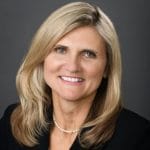For those in the sandwich generation – those middle-aged Americans with a parent 65 years or older who are also raising a minor or providing for an adult child – resources can be limited.
For some it can be manageable, but for others it isn’t.
Sometimes elderly loved ones need regular monitoring if they have memory or mobility issues, for example. And caregiving is more expensive now than before, especially when factoring in longevity and complex medical needs. Between caring for children of their own and keeping regular work hours, family caregivers’ resources may be stretched too thin to provide the needed care to their elderly loved ones.
As the health needs of their aging parents build, they may be faced with a myriad of challenges. How can I pay for these medical expenses? How can I care for both my aging parents and my young children? Where can I turn for help?
Members of the sandwich generation can seek referrals for support through their loved ones’ healthcare providers – primary care physicians, discharge planners, case managers or social workers – who can guide the older adult to PACE.
Those who know about PACE herald the model as an effective service. Still, too many people haven’t heard about PACE – including those who could really benefit from it.
PACE has been called the underdog of senior care, a hidden gem in healthcare and the secret for seniors and caregivers. And it has earned these titles through its affordability, whole-person approach and ease of use.
September is National PACE Month, a chance to build awareness for this underknown senior service. We need to reframe how we think about senior care, so PACE is not only represented in the conversation about care options but is also a top-of-mind choice for trusted healthcare providers and the family caregivers who seek their counsel.
For many individuals outside of the healthcare industry, the traditional line of thinking has been that as one ages, their options become limited. Nursing home care is one option, a family member serving as caregiver is another. But, for many, neither situation is tenable. Healthcare providers who serve the older adult population should share PACE as a third option with their patients and their patients’ caregivers, an option that can ease the burden of caregiving while still serving the medical needs of the patient.
Affordable Alternative to Senior Care
Oftentimes, nursing homes come to mind first when considering aging services for seniors whose health is declining. However, nursing facilities are not always financially possible for family caregivers as nearly half of adults in the sandwich generation provide a level of financial support to grown children and a quarter are financially supporting their parents as well.
For most, PACE participation is more affordable than nursing home care. Participants who qualify for Medicaid or Medicaid and Medicare have access to comprehensive medical and social services typically at no cost. Approximately 90 percent of PACE participants are dually eligible for Medicare and Medicaid, showing the accessibility of the program. Those who do not qualify for Medicaid may enroll for a flat monthly fee.
Through PACE, seniors receive nursing home-level medical services in their homes or at a PACE center. PACE receives funding through Medicare and Medicaid and operates as both the insurer and care provider, ensuring participants have their medical needs covered. Let’s say a senior needs a procedure that would be deemed by most insurance companies as out-of-network or uncovered. PACE providers sign an agreement with that out-of-network hospital and PACE privately pays so the procedure is covered. The risk is held by PACE, so the participant and their caregiver need not worry. Further, PACE has proven results in reducing admissions to hospital settings, as well as delaying or avoiding nursing home placement.
Especially for middle-aged adults who are caring for multiple generations, nursing home-level care provided at home by PACE can be a cost-saving option for helping their elderly parents stay well.
Team Approach to Whole-person Healthcare
As a caregiver to an aging parent, these individuals carry the responsibility and, frankly, the burden of coordinating care for their elderly loved one. For a family caregiver to juggle the responsibilities of home, work and caregiving can become overwhelming. Coordinating medical care and even arranging transportation to medical appointments for their elderly parent can prove stressful.
Caregivers can partner with PACE to share the responsibility of coordinating care for their elderly loved ones. Each PACE participant has a dedicated, multi-member Interdisciplinary Team that includes a primary care provider, health center registered nurse, home care registered nurse, physical therapist, occupational therapist, recreation therapist, social worker and dietician.
Together, this team treats the whole person with a full-circle view. Healthcare is administered in home or at the center, and caregivers can lean on PACE to organize transportation to medical appointments whether they are at the center or other facility.
PACE’s home healthcare professionals support the participant in their home and participants can spend time at the center, not only to receive medical care but to engage in recreational and social activities, all while in the vicinity of healthcare professionals who can provide medical services if needed.
This support can greatly ease the burden of caregiving from family members, providing much needed respite. With a PACE team available at home and the PACE center, family caregivers can make certain their elderly loved ones are receiving the care they need.
Healthcare providers who serve older adult patients should ensure that PACE is part of the conversation when it comes to determining long-term care options for seniors. This lesser-known senior care option is one that may very well be the best choice for patients and their caregivers.

Michelle Mazzacco
Michelle Mazzacco is Executive Vice President of Eddy SeniorCare PACE.






